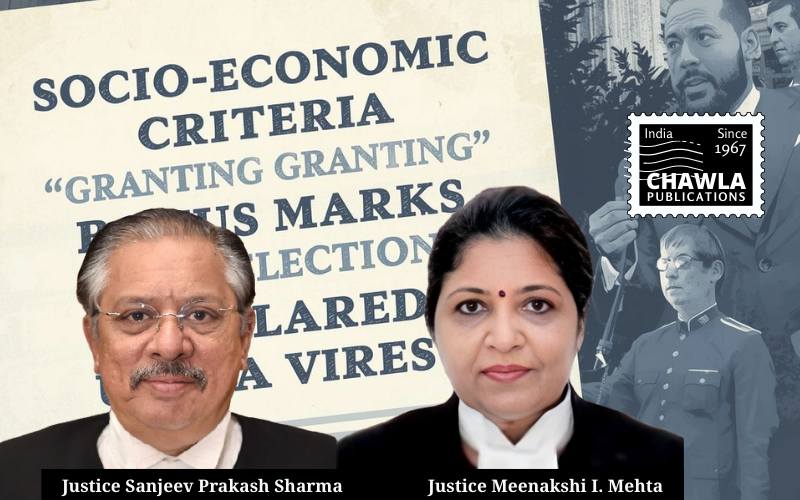Violates equality clause under Articles 14, 15, and 16, creates artificial classification, and is arbitrary and discriminatory.
In a landmark judgment, the Punjab and Haryana High Court has declared the socio-economic criteria adopted by the State of Haryana for granting bonus marks in public appointments as ultra vires, violating the constitutional provisions of Articles 14, 15, and 16. The judgment, delivered by a Division Bench comprising Mr. Sanjeev Prakash Sharma and Ms. Meenakshi I. Mehta, has significant implications for the recruitment process in Haryana.
The contentious socio-economic criteria, introduced through a notification dated June 11, 2019, allowed for the awarding of up to 10 bonus marks to candidates based on socio-economic status and experience, as part of the selection process for various public posts. This policy was challenged in multiple writ petitions, including one by the petitioner Neeraj, on the grounds that it led to discrimination and arbitrariness, creating an artificial classification among candidates.
The court's judgment meticulously analyzed the constitutional framework, particularly focusing on the equality clause enshrined in Articles 14, 15, and 16 of the Indian Constitution. The bench concluded that the criteria not only contravened the equality principle but also amounted to an arbitrary and discriminatory practice that could not be justified under the constitutional mandate.
One of the key aspects of the court's decision was the emphasis on the principles of transparency and fairness in the recruitment process. The judgment criticized the socio-economic criteria for lacking a sound legal basis and for not being supported by any rules framed under Article 309 of the Constitution. Moreover, the court highlighted that no empirical data was collected to justify such a policy, thereby making it arbitrary and unreasonable.
The judgment also addressed the issue of estoppel, noting that candidates who participated in the selection process could not challenge the criteria post-participation. However, given the pending status of the writ petitions and the court's earlier directive that selections would be subject to the final decision, this principle was not applied in this case.
In terms of remedial measures, the court directed the Haryana Staff Selection Commission to revise the merit list solely based on the marks obtained in the written examination, excluding the bonus marks. It further instructed the state government to ensure transparency and consistency in future recruitment processes by framing clear rules for conducting examinations.
The judgment also provided a pathway for current appointees who may be affected by the revised merit list. Those already appointed but not qualifying under the revised criteria would be allowed to continue in their roles until suitable vacancies arise, ensuring no immediate job loss due to the revised merit list. The court mandated the completion of this entire exercise within three months.
This decision is expected to have wide-ranging implications for public recruitment policies, not only in Haryana but potentially across other states as well. By reaffirming the principles of equality and transparency, the Punjab and Haryana High Court has set a precedent that may influence future legal challenges to similar recruitment policies in India.
Neeraj v. State of Haryana, (Punjab And Haryana)(DB) : Law Finder Doc id # 2734315




